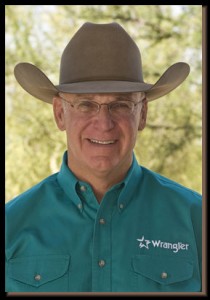As I mentioned before, recently a horse in my area has been diagnosed with EHV-1. After hearing this news I contacted Mr. Al Dunning since I knew that he personally had experienced this virus with his horses. I wanted to get his first hand account of the situation and learn what I could do to insure my horses won’t get the disease.

For those of you who aren’t familiar with Mr. Dunning, here’s a little background information.
His accomplishments include:
- 33 World and Reserve World Titles
- AQHA World Championship in Western Riding and other various styles
- He was a finalist in the NRCHA World’s Greatest Horseman Contest
- He’s trained Riders that have won 11 World Championships
- He trained and showed an AQHA Hall of Fame horse called Expensive Hobby
- He was proclaimed AQHA Professional HOrseman of the year in 1996
For more information on Al Dunning visit his websites: http://www.aldunning.com/ & http://www.teamadinternational.com/. Also be sure to follow him on Twitter @ALDunning
Having experienced this virus first hand and knowing the effects it can have, if you heard of a case close to you what precautions would you take? Would you continue to travel to shows or stay home?
If I was worried about the virus in the area, I would close the gates to my facility and not let horses in or out. 2) I would verify that it is a confirmed case. 3)Start the sanitizing process.
What were the signs/symptoms you saw in your horses?
The symptoms we saw were lethargy, unstable balance, dragging feet, and temps over 102.
Once your horses were diagnosed and you knew your farm was exposed to the virus, what steps did you take to care for the sick horses as well as keeping the uninfected horses from getting sick?
Temperatures were taken twice daily on all the horses on the ranch. If a horse showed a temp, they were immediately separated from the other animals by at least 300 feet. We began the process of sterilizing everything with a bleach mixture. Each horse’s halters, blankets, brushes, ect, were kept exclusively for that horse. We were careful to wash hands and sanitize when we went from one horse to another. This made the temping process very long, but is necessary for the health of the animals. The sick horses completed a 30 day treatment before returning to the barn.
Could you tell us a little bit about what you had to do on a daily basis to care for your sick horses?
Temping 2x a day, Valtrex, Selenium and Reborne medications, separation, monitor their feed and water intake and behavior, walk horses out of the stall to check for neurological signs.
What is the medication used for the treatment and what should someone expect to spend on treatment?
The main medication was Valtrex. You can talk to your veterinarian for specific dosages. We also supplemented with Selenium and Reborne, a immune system stimulant that I believe played a huge part in helping my horses that showed symptoms. I would say the cost of treatment was about $2000.00 per horse.
Once your horses went through the treatment, how long did it take for them to recover and are they back to performance level?
We did nasal swabs and blood tests after the 30 day treatment. Once these tests were clear, the horses slowly resumed conditioning and training. I had three horse show neurological symptoms. One made a full recovery in 30 days, the second was back to normal in about 90 days, and the third is still recovering, though doing well.
After going through that hard time, are there any precautions you take now when traveling to different places that you didn’t take previously?
We are much more careful and vigilant. We always make sure the stalls have been sanitized when we travel. We temp our horses a lot more than we ever used to and watch for signs.
What’s the most important thing you think horse owners should know about the virus?
I would say the most important thing is not to take this virus lightly. Once you see what it can do to a horse, you know it is something to be taken seriously. Also, it’s important not to panic and realize that this is not a new virus. It has been around for a long time, and thankfully we now are even more aware of how to properly deal with it.
Here are some articles with more information on EHV-1:
Neurologic EHV-1: The Top Five Things You Need to Know‘
I want to say Thanks again to Mr. Dunning and his daughter McKenzie for allowing me to do this interview! I am a huge fan of Al Dunning and have really been blown away with his kindness and willingness to talk to people.


2 Comments
Justine A. Young
January 11, 2012 at 7:38 amI thought there was a vaccine for this virus? Please advise.
NC Cowgirl
January 11, 2012 at 8:09 amHey Justine,
There is not a vaccine against the virus from what I understand. This was a comment thread I read on Carolina Equines Facebook page that might be helpful tho.
Carolina Equine Hospital: There is no evidence that the vaccines we have available provide any protection against the neurologic form of EHV-1. For this reason, we are not currently recommending you vaccinate your horses. Luckily, the disease is currently confined to one farm which is under voluntary quarantine to prevent spread of the disease.
Lynda Shackelford: Yes, I know that, but I read this “Some of the EHV-1 vaccines have been shown to reduce nasal shedding and in some cases reduce viremia. These products may therefore have some theoretical value against EHM (by reducing viremia), and certainly against spread of the virus” so that’s why I was asking.
Carolina Equine Hospital: That is true, Lynda. However, viremia only occurs in horses that are already infected, and therefore vaccination to decrease viremia is only useful in horses that have been exposed or infected. So, at this point we are not recommending vaccination unless your horse has potentially been exposed to a horse with a confirmed case of EHV-1. And as mentioned above, currently the cases are confined to one farm that is under quarantine, so the risk of exposure is low. If you have any further questions, please feel free to call the office at 336-349-4080.